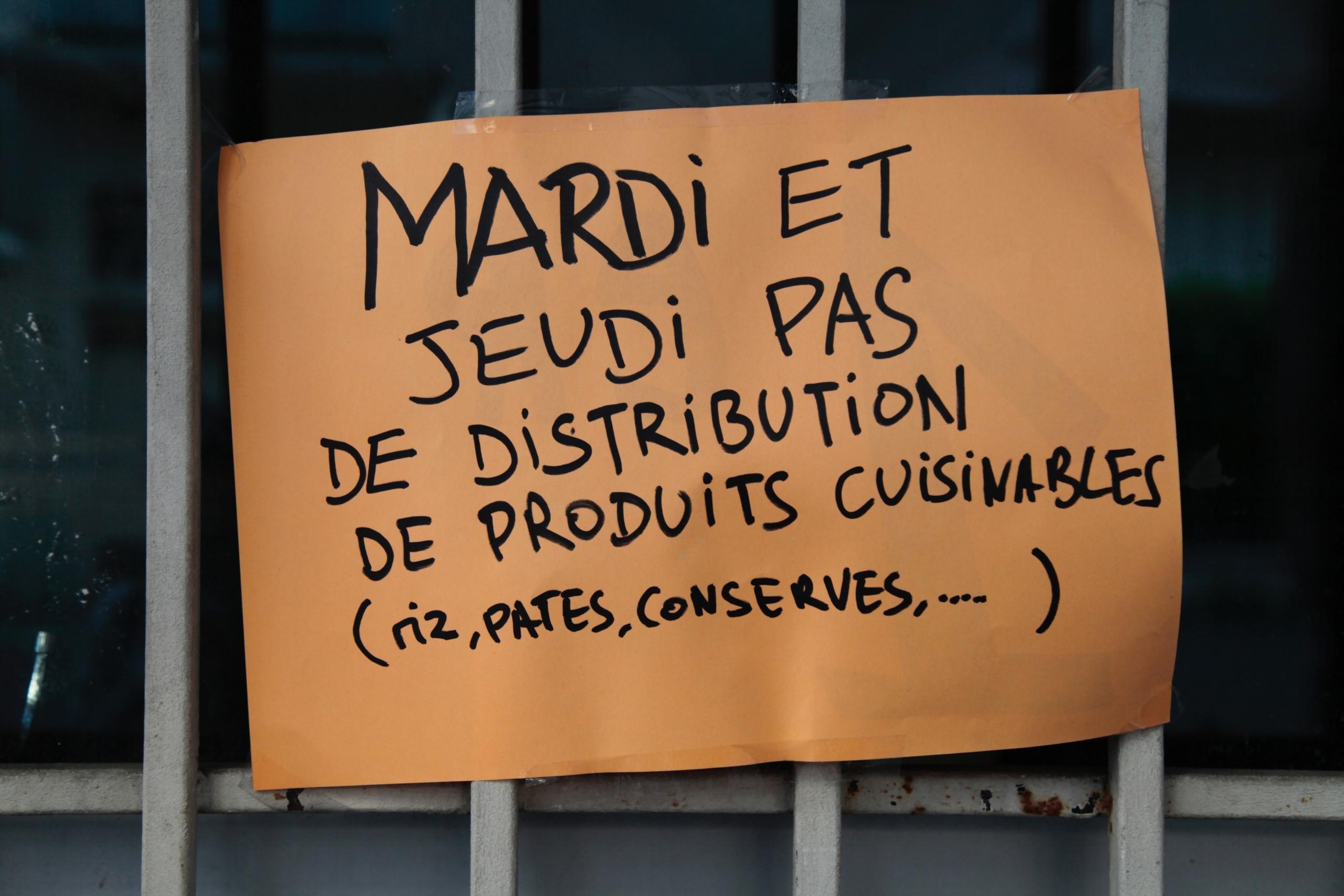"Vocabulary enables us to interpret and express. If you have a limited vocabulary, you will also have a limited vision and a limited future." - Jim Rohn
An impressive vocabulary can go a long way. You’ll be taken more seriously and you’ll also be a more interesting and entertaining person with whom to have a conversation. A wide-ranging choice of words can actually provide opportunities and open doors while growing your vocabulary can also be immensely gratifying. This applies to both your native tongue or for instance growing your vocabulary in French!
Of course, growing your mother tongue vocabulary is an endless adventure, but if you have decided to learn French, putting extra effort into your French daily words is not only practical for your foreign language acquisition, but it is enormously exciting. Every time you use a new word and are actually understood, you can expect a great surge of self-satisfaction!
So if you have begun French lessons, you may be wondering how on earth you will ever remember all the words needed to speak fluently!
If this is you, keep reading because this article has all the suggestions and tips you will need. Amongst these, you will find out about flashcards, French vocabulary lists, memory games, and even vocabulary chunking (that’s right). All of these are aimed to help you memorise and then retain words during your beginner to intermediate French lessons. Are you ready? Let’s go.

French Vocabulary Lists
Even though some experts would say that using lists is an ineffective way to gain new vocabulary, it is a practice that has paid off for many students for centuries. Take a look at some of the reasons to support the idea of learning French daily words through the use of practical and functional lists.
An Organised Approach
Some resources claim that somewhere between 500 and 1 000 words are necessary to create basic fluency in languages like French, English, Italian, and Spanish. Managing this amount of new words while still trying to come to terms with everything else required to learn French takes organisation. This is when a good list of French vocabulary that is arranged in order of importance can help the learning process. A physical inventory (not just digital) means that you can quickly crosswords off your list as you acquire them.
Personalise Your French Vocab
Even though most French vocabulary lists are ready-made, that shouldn’t stop you from customising a list that includes words that are relevant to your life situations and interests. You could add words that include places, hobbies or business terminology that is relevant to you. A good way to learn French words is to use browse the vocabulary lists provided and then add your own vocabulary to them.

Digitise Your French Daily Words
While some would argue that hard copies are better than digital ones, this really is up to the way you choose to learn. We are living in a digital age and there are many advantages to learning your French vocab from digital lists and audio recordings that help with both pronunciation and recall.
There you have it. Above are three excellent reasons that demonstrate the importance of using vocabulary lists to help you learn French.
Use Flashcards to Increase Your Vocabulary in French
Good old flashcards. Truly, when it comes to language acquisition they are still a powerful resource. So if you want to learn French, make sure this tried and tested vocabulary memoriser is on your list! Here are two reasons why flashcards will help you remember your French daily words.
Active Recall is Activated
As you look at one side of a flashcard and think about the answer, your brain is engaged in something called ‘active recall’. This means that in the case of practising your vocabulary in French, you will visualise the correct word which will help you remember it, rather than staring at a page in a textbook that provides the answer for you. Science has proven that active recall successfully turns on the neurons that create a connection that is not easily forgotten!
Confidence is Heightened
When you frequently analyse flashcards to help you learn French words, something called spaced repetition, confidence is increased. This is also scientifically proven to improve memory ability. The best part about that is that when you remember things correctly, your confidence in yourself to get things done improves too!
So if you want to make your French lessons more interesting by using flashcards, you can be sure to learn new words, concepts, and ideas quickly and effectively. This is the reason why so many education companies create online, customisable flashcards online.
One such example is Anki, a popular online resource that is frequently used by high school and university learners to prepare for exams. Anki can be used by language learners to master basic French vocabulary necessary for clear communication in daily life. It is an extremely interactive tool that is necessary for all types of users.
Vocabulary Chunking

What?
Have you not heard the term "chunking vocabulary?" If not, don’t worry, most people have not, however, if you want to learn French, this is something you should look into!
Chunking vocabulary is a term that is used for acquiring language in context instead of singling out concepts word by word.
In essence, chunking is when you take small bits of information and add them together to recall one larger concept. It can be a fun and useful part of your French lessons.
When you learn chunks of vocabulary, things such as fixed phrases, set phrases or other linguistic concepts it can help to learn French in a more fun way!
If you are exasperated by long lists of ‘essential’ vocabulary in French then vocabulary chunking is for you, especially if you want to learn new words quickly so that you can write in French. Basically, chunking means that instead of learning singular words, you will remember short phrases using your French daily words, and this will dramatically improve your conversational skills.
Memory Games
If you love games, then using vocabulary in French to have fun will definitely float your boat! A number of language gurus have proven that taking part in games is a fantastic way to learn French and memorise vocabulary.
Introducing games that touch on the following topics will improve French vocab:
- Occupations
- Household items
- Things you find at a grocery store
- Fruits and veggies
- Verbs
- Actions
- Animals
- Plants
There are several concentration or memory games that are available online that can either be played by yourself or with others who want to learn French.
Label, Label, Label

If you’ve ever been to the house of a dedicated language student, you have probably seen sticky labels on just about every inanimate object in the house! Perhaps even, the dog!
This popular exercise could certainly help to increase your vocabulary in French in a way that is fun and very subliminal.
You could take post-it notes and stick them to all your appliances and furniture pieces. Take it from the students who have gone before you – it can definitely help!
Take French Lessons with a Private Tutor
Of all the advice you can get about how to easily learn French, there is one that still remains the most effective. Find a private French tutor! There’s no doubt that private, one-on-one teaching is the way to fast-track your fluency and help you to retain vocabulary in French.
Professional tutors have the qualifications and experience to make language acquisition for foreign students rewarding and engaging. Besides helping you with your French daily words and pronunciation, you can expect to learn how to read French with confidence and hone your listening skills for good comprehension.
Tutors are well trained to recognise your unique weaknesses and help you to grasp tricky aspects of your lessons more quickly than if you were in a big class or trying to self-teach.
It’s really important to find a tutor who is well-matched with your goals, ability, and budget. By using Superprof which offers a plethora of teachers for every level, this is made easy because you only need to search in one place. This can save you time but more importantly, offer you the peace of mind of knowing that the tutors are credentials-verified.
Superprof tutors are surprisingly affordable. If you cannot find one near to you for in-person lessons, it is very easy to choose someone from anywhere else around South Africa, or even abroad. All you need is access to the internet and preferably a webcam!
Finally, however you decide to learn French and increase your vocabulary, remember that it will take some effort, but with enough perseverance, you are guaranteed to eventually become fluent. There’s no question, having a new language on your CV, especially one that is considered an international language like French will take you places and open doors!
Summarise with AI:















